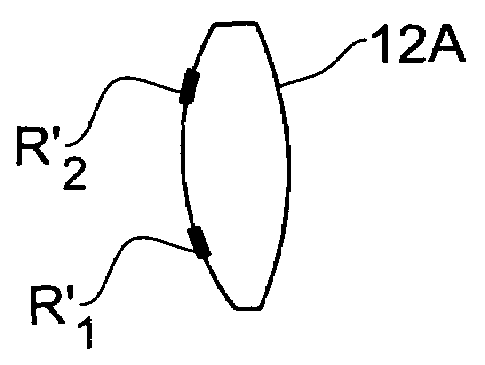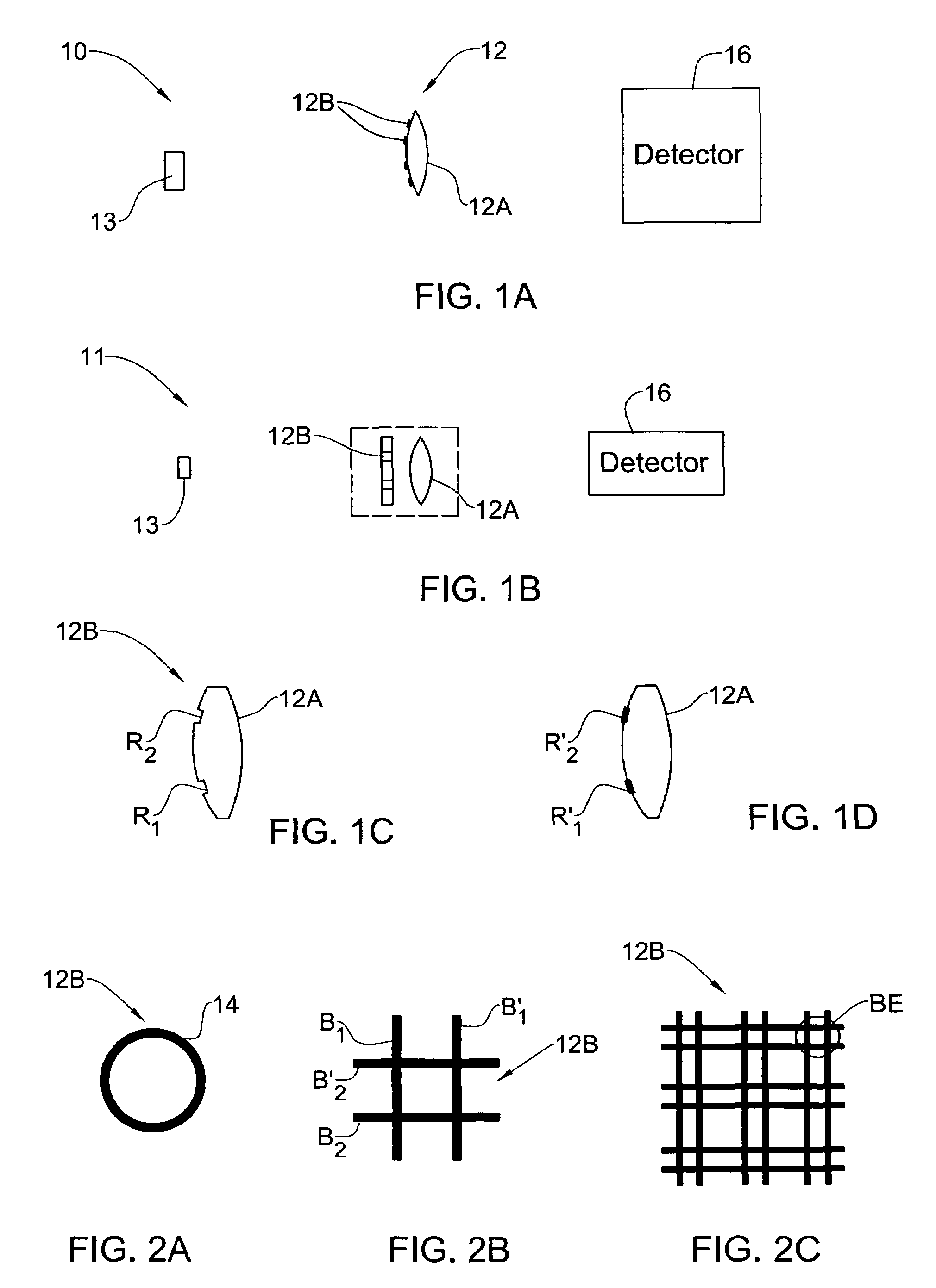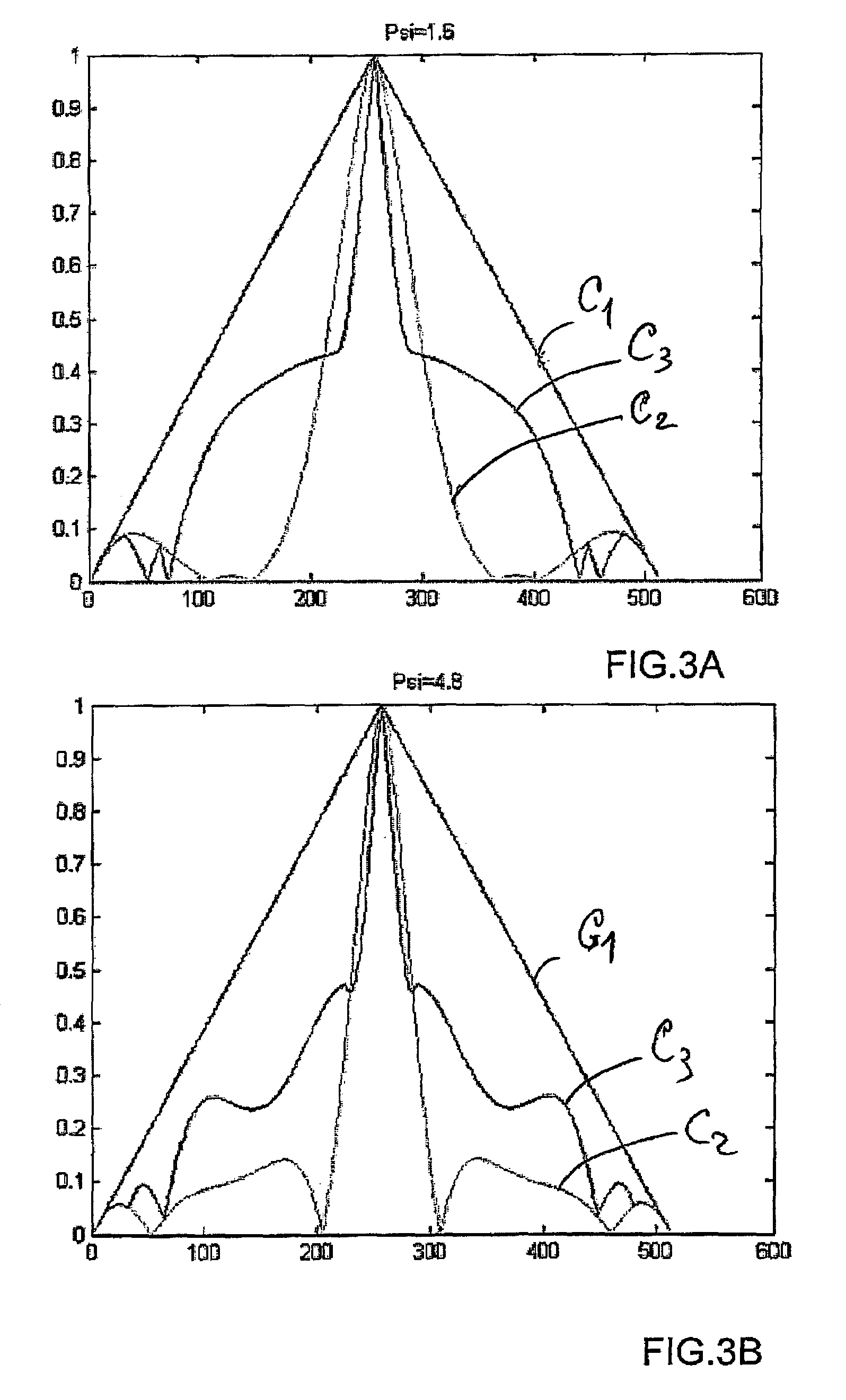Optical method and system for extended depth of focus
a technology of optical methods and depth of focus, applied in the field of imaging systems, can solve the problem that the diffractive optical element cannot achieve high efficiency
- Summary
- Abstract
- Description
- Claims
- Application Information
AI Technical Summary
Benefits of technology
Problems solved by technology
Method used
Image
Examples
Embodiment Construction
[0070]Referring to FIG. 1A, there is schematically illustrated an imaging system 10 utilizing an imaging lens arrangement 12 of the present invention. The imaging system 10 is formed by an object 13 that is to be imaged, the imaging lens arrangement 12, and a light detector unit 16. The lens arrangement 12 includes an imaging lens 12A having a certain effective aperture D (which in the present example if the lens diameter), and an optical element 12B.
[0071]The optical element 12B is configured in accordance with the parameters of the lens 12A, i.e., its effective aperture and optionally also the optical power distribution and / or focal length. The optical element 12B is configured as a phase-affecting non-diffractive mask. Preferably, as shown in the present example, the mask 12B is implemented integral with the lens, namely as a pattern on the lens surface.
[0072]Generally, the mask 12B may be a separate element attached to the imaging lens or located close thereto. This is illustrat...
PUM
 Login to View More
Login to View More Abstract
Description
Claims
Application Information
 Login to View More
Login to View More - R&D
- Intellectual Property
- Life Sciences
- Materials
- Tech Scout
- Unparalleled Data Quality
- Higher Quality Content
- 60% Fewer Hallucinations
Browse by: Latest US Patents, China's latest patents, Technical Efficacy Thesaurus, Application Domain, Technology Topic, Popular Technical Reports.
© 2025 PatSnap. All rights reserved.Legal|Privacy policy|Modern Slavery Act Transparency Statement|Sitemap|About US| Contact US: help@patsnap.com



